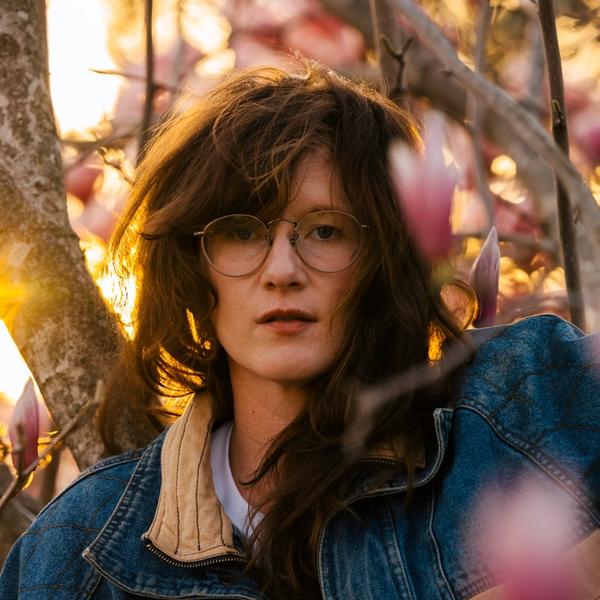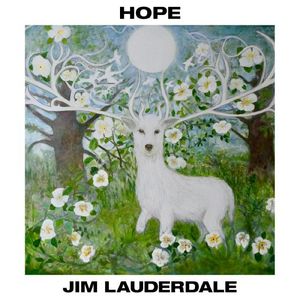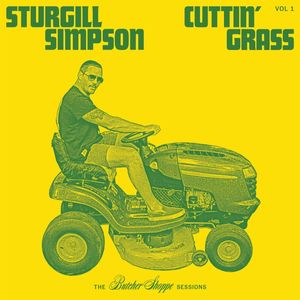




Link copied

Nearly a year after the release of her powerful major-label debut, Old Time Feeling, S.G. Goodman is now well-versed in the pros and cons of releasing an album during a pandemic. On the negative side, pitching the record to listeners over social media made her feel even more like a "used car salesman" than carrying a merch table at her shows. But on the overwhelmingly positive side, she says she's made it this far through the pandemic without losing anyone to COVID-19 and feels "humbled" by the response to the record.
A tender, searing collection of songs that chronicle Goodman's experience as a Kentucky native, Old Time Feeling paints a portrait of the American south that she both loves and fights for change within. The songs rally for workers' rights and rail against food injustice in one breath; before turning to deeply personal, intimate love and heartbreak stories in the next. Goodman may have an uncanny sensibility for evoking life in rural Kentucky, yet cringes at the mention of being representative of the state or her community.
Here, Goodman speaks about her experience of releasing Old Time Feeling, the difficult task of relinquishing control over how the songs are perceived and what the album has taught her.

You are often seen as a spokesperson: as a Kentuckian, as a Southerner, as a political activist acting for underserved working-class communities. Do you feel like a spokesperson?
Psh, no. I have so many friends who aren't musicians, who I look up to for their actions and beliefs, and I see them living those lives out in front of their neighbors. I happen to have a microphone in front of me. I think it'd be a very dangerous thing for me to wake up one morning, look in the mirror and go, "I'm representing you, Kentucky!" I mean, I've always thought I was representing Kentucky, just because I'm from here. You always want to remember what you're tied to in your presentation of yourself. People label you, but I don't read much into it. I'm not in control of that, is what I'm saying.
Old Time Feeling is the most notable project you've released in terms of listenership. How does it feel not being able to control how you are perceived?
Being I have Obsessive Compulsive Disorder and control is this huge thing that I struggle with daily; it's been hard. Nevertheless, it's been a good learning process. In some ways, I've been more aware of people's reactions because of the pandemic, both negative and positive. There have been painful moments, but there was also a chance to process in quietness, which has been healthy. As a musician, you get asked a lot about your genre and what your message is, and I have this belief that once you put something out for the world, it's not yours anymore. If I intended to control the way I thought things should be, I would write a diary and not show people. But that's not what I'm doing. I don't think that often about what people make of a song where I had a particular idea in mind. It's theirs now.
As you're looking toward your next album, does the experience in putting out a record and people interpreting songs in different ways influence how you write?
I don't think so. I know where my weaknesses are as a songwriter. I'm a singer-songwriter - a lot of my songs are slow and ballad-y. I struggle with writing fast songs; they don't naturally come to me, so that is something I've been trying to do. Will this record be extremely fast? It probably won't be, but maybe that was an intention; to push myself in areas where I feel weak as an artist.
You have some shows with John Moreland set for May. How do you feel about returning to the stage after all this time off the road?
I'll perform as a two-piece for these shows; it's something I'm so thankful for but also scared by. The world has only heard my album as a full band; I'm entering back onstage for the first time in months. I'll be playing my music in a way that it's not even the most comfortable representation of myself. I know I'm gonna walk on that stage a little anxious, but I'll feel so grateful that there are real humans in front of me, not a computer screen and a virtual clap that you can't even hear. But yes, there's still a lot of anxiety in feeling so out of practice with performing.
I think everyone is going to have to re-socialize to a certain degree?
Exactly, I know. Then it's like, are people going to feel comfortable buying my merch if they have to touch it? There's just gonna be a lot of safety protocols. I'm not sure I'll ever tour again without a mask. It makes sense - if I get sick, even if it's just a general cold, that messes with my ability to commit to a show for which people have bought tickets. So that's something I've had a talk about with my band. There's no reason for us to go into a gas station without a mask. It's simple. Just do it, you know?
I've heard you cover Florence Reece's 'Which Side Are You On?' over the past couple of years. With her being a Kentuckian and a workers' rights activist, can you describe your connection to that song and why you keep coming back to it?
It's because it's relevant, period. It hearkens back to when people were writing songs as battle cries for Kentucky and understanding our place in workers' rights. How many people have died to give us the opportunities we have as workers today? That's why we should continue in that battle. It's the relevant nature of that song that is powerful, years and years later.
S.G. Goodman's latest album, Old Time Feeling, is out now via Verve Forecast / UMG.
Photography courtesy of S.G. Goodman





